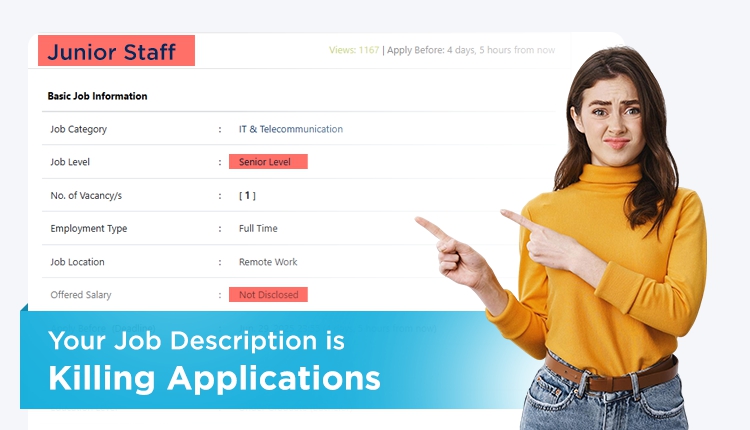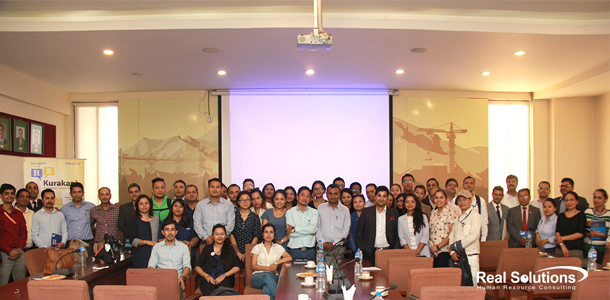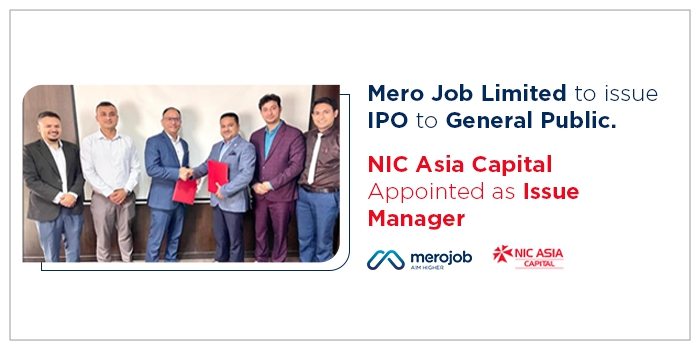When an employee decides to leave the company, it is essential to know the reasons behind resigning from their current position. Many employers conduct an exit interview after the notice period is served regarding the employee’s departure from the company.
This conversation is an opportunity for employers to gain insight into the causes of why the employee is leaving. Whereas, employees too can provide honest feedback and offer advice to help them do better.
Importance of exit interview
Companies tend to conduct exit interviews to get an insight into why the employee is resigning and hear their opinion about their work, supervisors, organization, and more. An exit interview is a conversation between the employer, likely an HR who manages offboarding, and the employee.
If conducted properly exit interviews can give employers a great understanding of their business and assist in employee satisfaction and engagement. It is also the chance to hear an honest perspective from the departing employees as they are likely to provide frank answers. Rather than current employees who may not be as comfortable speaking their minds.
In addition, recruiting is expensive and if lots of employees are quitting their job, then actions must be taken. Exit interviews are a good way to detect what the problem is and resolve it. This can even add to the company culture and employee fulfillment. With exit interviews, you can identify trends that can overall contribute to the business strategies and the way employers are perceived in the company.
It is important to approach an exit interview positively. It is always a good thing to end the employment on a positive note and maintain a good relationship with the employees. They may just wish to return someday.
Ways to conduct an exit interview
Every leaver gets an interview
Every individual who decides to resign deserves an exit interview. Some companies tend to conduct them only with high performers and ignore the rest. Organizing exit interviews only for certain employees send out a destructive message. This tells the rest of the company that only a few people’s views are worth listening to.
If the company ignores the perspective of the rest of the departing employees then it can create a massive gap in understanding the possible reason for turnover. Unless questions are asked, things will remain uncertain and unanswered.
Choose the procedure
There are two possible ways to conduct an exit interview. In one scenario, a written questionnaire can be provided which can be less time-consuming. Alternatively, a one-to-one conversation can be implemented.
Either one or a combination of both can take place, where employees are provided a form to fill out and answers are discussed. However, the face-to-face conversation can be more effective as it may lead to productive conversations.
Prepare beforehand
Even if the company has been conducting exit interviews, it is important to understand that every employee is different and preparation needs to be made individually. Be familiar with the employee's roles and responsibilities and set up the conversation. Don't forget to make the employee comfortable and keep the conversation as private and casual as possible.
Choose the right time
Employees will provide the notice period as required, it is best to schedule the exit interview around the time when the employee has 1 week left. Communicate with the departing employee beforehand that an interview will be set up and pick a time that suits both the employee and the interviewer. This way no one gets interrupted and everything is discussed. It is also a good practice to let the employee know the interview is confidential and ask if they are comfortable with the information being shared with higher management.
Guide the conversation
As an interviewer, one may have the instinct to lead the conversation to the topic they want to hear about. This is especially true for those who are passionate about the business and who want to make positive changes. However, trying to take control of the interview may feel forced and may not yield truthful feedback. By all means, guide the topic that might be relevant, but the goal is to listen to what the learner has to say. When the interviewer listens, the employee gets the impression that what he/she says is important to the company. This might lead to unexpected and surprising answers.
Effective Exit Interview Questions
To make the most out of the interview here are some effective exit interview questions to ask the departing employee.
Why did you start looking for a new job?
Your reason for leaving the company
How do you feel about your supervisor and other leaders?
Do you feel your job description changed over time? If yes, in what ways?
Do you think the management recognized your contribution sufficiently? If not, do you have any suggestions to improve employee recognition?
Did you feel you had enough tools and resources to be successful in your work? If not, what was missing?
Under what circumstances, if any, would you consider returning to the company?
How would you describe the company culture?
What can the company improve on? Your top recommendations for improvement.
Final Thoughts
If someone in the company is leaving it is important to know the reason. People rarely decide to leave for irrational reasons. If they have gone on this path they have been thinking about leaving due to some aspects of their job that made them discontented.
To retain high-performing talents and attract more, it's crucial to find out why the existing employees are leaving and what might make them stay. A properly conducted exit interview gives employers the perfect opportunity to find out.
It is important to remember that exit interviews won't succeed if it is forced and departing employees feel uncomfortable. Offer them alternatives like a questionnaire to fill out or a phone interview after they leave, if that will keep them at ease.
















